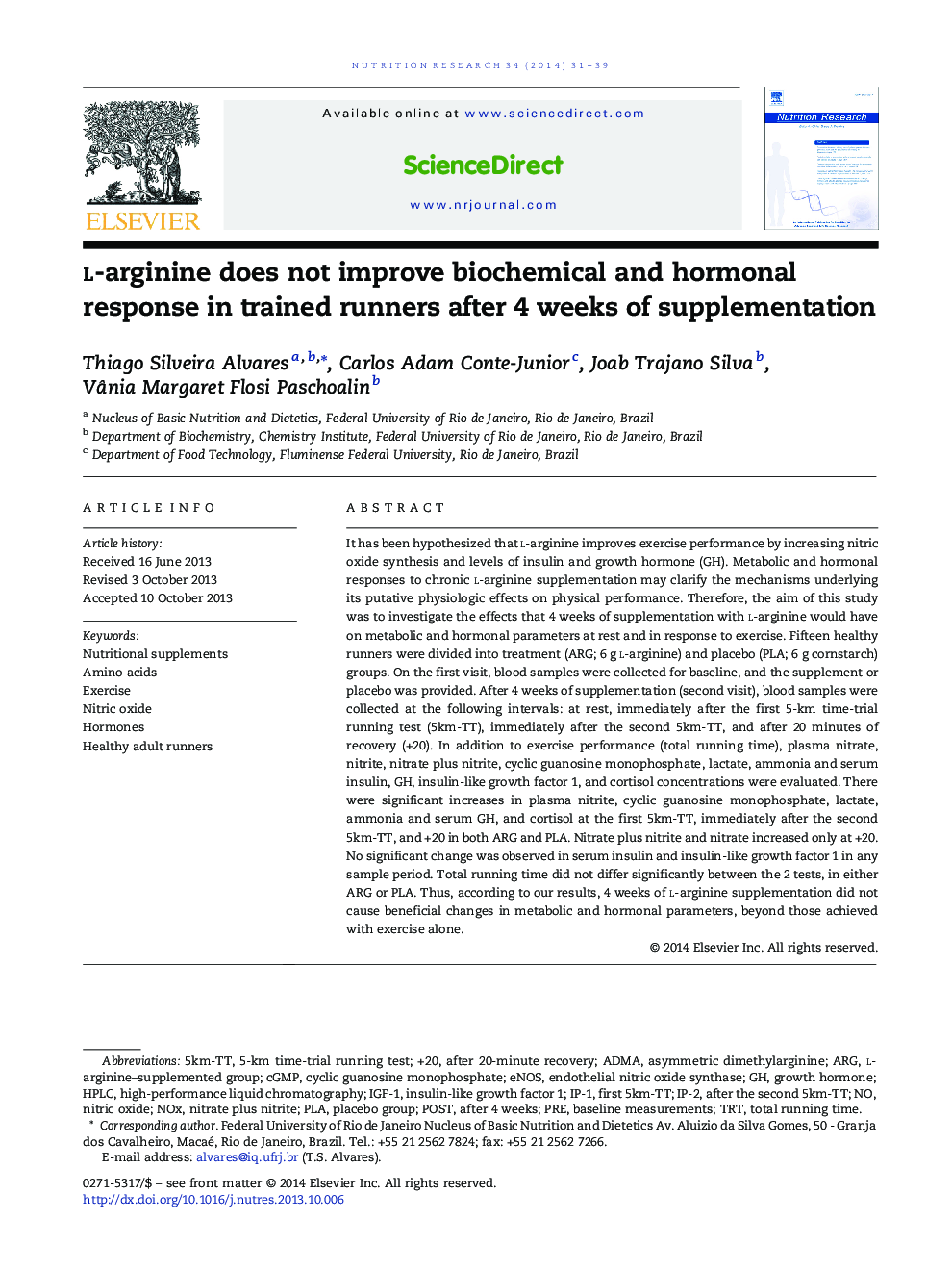| Article ID | Journal | Published Year | Pages | File Type |
|---|---|---|---|---|
| 2809191 | Nutrition Research | 2014 | 9 Pages |
It has been hypothesized that l-arginine improves exercise performance by increasing nitric oxide synthesis and levels of insulin and growth hormone (GH). Metabolic and hormonal responses to chronic l-arginine supplementation may clarify the mechanisms underlying its putative physiologic effects on physical performance. Therefore, the aim of this study was to investigate the effects that 4 weeks of supplementation with l-arginine would have on metabolic and hormonal parameters at rest and in response to exercise. Fifteen healthy runners were divided into treatment (ARG; 6 g l-arginine) and placebo (PLA; 6 g cornstarch) groups. On the first visit, blood samples were collected for baseline, and the supplement or placebo was provided. After 4 weeks of supplementation (second visit), blood samples were collected at the following intervals: at rest, immediately after the first 5-km time-trial running test (5km-TT), immediately after the second 5km-TT, and after 20 minutes of recovery (+20). In addition to exercise performance (total running time), plasma nitrate, nitrite, nitrate plus nitrite, cyclic guanosine monophosphate, lactate, ammonia and serum insulin, GH, insulin-like growth factor 1, and cortisol concentrations were evaluated. There were significant increases in plasma nitrite, cyclic guanosine monophosphate, lactate, ammonia and serum GH, and cortisol at the first 5km-TT, immediately after the second 5km-TT, and +20 in both ARG and PLA. Nitrate plus nitrite and nitrate increased only at +20. No significant change was observed in serum insulin and insulin-like growth factor 1 in any sample period. Total running time did not differ significantly between the 2 tests, in either ARG or PLA. Thus, according to our results, 4 weeks of l-arginine supplementation did not cause beneficial changes in metabolic and hormonal parameters, beyond those achieved with exercise alone.
